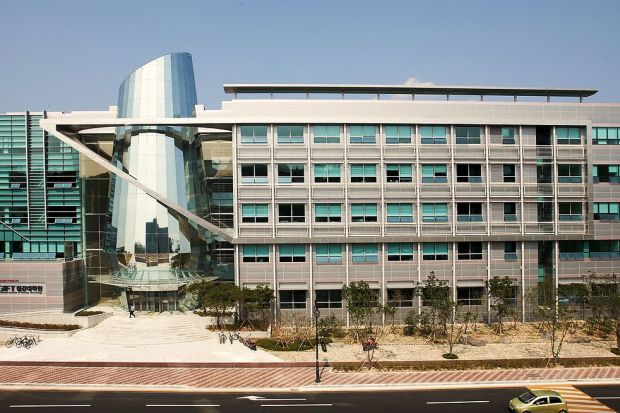POSTECH: Neutralize Stronger COVID-19 Variants
The emergence of unpredictable variants and their stronger infectivity make the COVID-19 pandemic neverending – over 300 Omicron variants have been reported so far. Will there ever be a universal cure for the COVID-19 by neutralizing the various mutated strains of the virus?
A research team led by Professor Seung Soo Oh (Department of Materials Science and Engineering) has developed a tailored COVID-19 neutralizer that can adapt to all kinds of mutations in the virus in treating the viral infection. This neutralizing agent is designed to exhibit stronger effect by utilizing the same mechanism that viruses use to become stronger in infection through evolutionary processes.
The reason behind the increasing infectivity of the coronavirus with repeated mutations is that the virus can change its structure and thus increase the strength of its interaction with the angiotensin-converting enzyme (hACE2) receptor, a cell surface protein. Conventional treatments and neutralizing technologies fail to immediately respond to these newly emerging variants.
The research team found an innovative way to suppress cell infection by mimicking the principle of hotspot interaction between the virus and the hACE2 receptor. The newly developed hybrid neutralizer, consisting of a protein fragment and nucleic acids, can strongly bind to the coronavirus, which causes the virus not to interact with the hACE2 receptor, eventually inhibiting its penetration into the cells.
This neutralizer draws attention as it was based on the research team’s proprietary expertise in in vitro evolution technology called Hotspot-Oriented Ligand Display (HOLD). The HOLD is an evolutionary technology that automatically selects the most suitable material out of the 10 trillion candidate materials for binding to the virus, and the principle of the HOLD resembles the theory of natural selection, which postulated that individuals adapting to the changing environment have a high rate of survival.
The study reported that this hybrid agent has an excellent neutralizing effect not only against the Alpha, Beta, Gamma, and Delta variants but also the Omicron variant, which is known to be the most contagious. The neutralizing performance of this agent against the Omicron variant (equilibrium dissociation constant*1) was found to be 1.209 nanomoles (nM; 1 nM = 1 billionth of a mole), which is about 5 times higher than the observed neutralizing performance against the earlier strain of coronavirus (5.702 nM).
Professor Seung Soo Oh explained, “It is significant that we have developed the world’s first self-evolving neutralizer-developing platform that shows increasingly better performance with the occurrence of viral mutations.” He added, “We plan to develop it into a core technology that can respond to the next-generation pandemic viruses, such as influenza and Hantavirus.”
This study was published in Science Advances on October 26, 2022 (U.S. local time) and supported by the Samsung Research Funding and Incubation of Samsung Electronics.

